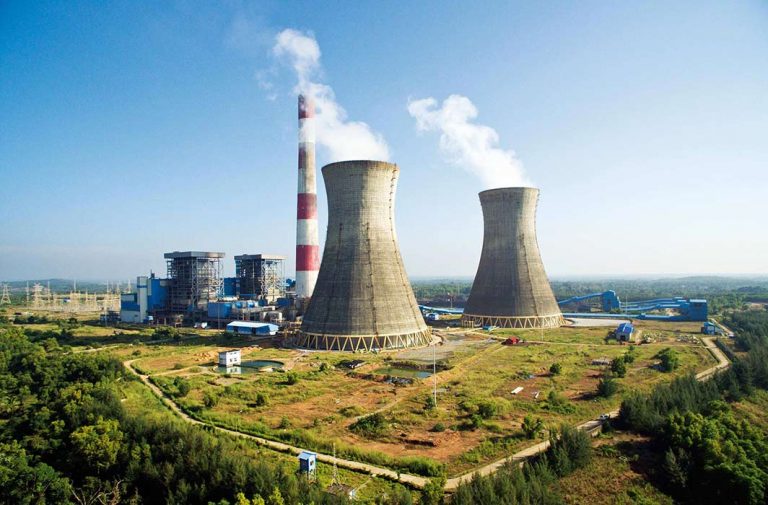
By Stephen David in Bengaluru
The National Green Tribunal [NGT] has asked the 1,200 MW coal-based power plant Udupi Power Corporation [UPC] to pay a Rs 5 crore fine to the Central Pollution Control Board [CPCB] by mid-April after suspending the environmental clearance that will delay the plant’s expansion plans.
The Rs 5 crore fine was invoked under the polluter pays principle under Sec 20 in the NGT Act 2010: “The Tribunal shall, while passing any order or decision or award, apply the principles of sustainable development, the precautionary principle and the polluter pays principle.
UPC is among the four power projects in Gujarat, Maharashtra and Rajasthan making Adani the largest private thermal power producer in India with an installed capacity of 10,480 MW. The group is targeting having an installed base of 20,000 MW by 2020 and has ramped up expansion plans of its projects. The Udupi plant had sought green clearance to add two 800 MW units to raise its capacity to 2,800 MW by 2020.
Asked if the NGT order would be challenged in the Supreme Court UPC President and CEO Kishore Alva told India Legal that he won’t be able to discuss the matter “as it is sub judice”. Besides directing the power company to deposit Rs 5 crore as an interim environmental compensation with the Central Pollution Control Board, NGT sought a report within June 2019 by a team of experts drawn from the Board, IIT Chennai and IISc Bangalore on the environmental impact of the power plant in Udupi.
Apart from this, UPC has been directed to pay Rs 1 lakh as cost to the petitioner Janajagruthi Samithi, an NGO in Udupi, that has been fighting against the siting of the project in what it says is an ecologically sensitive region. The plant is situated in the village of Yellur, between Mangalore and Udupi. The Samithi received a fillip for its cause by a 2012 Indian Institute of Science report on the impact on the environment.
Another group called UPCL Virodhi Horata Samiti, after hailing the NGT order, has threatened to file a complaint on all officials who it charges “granted illegal license to the company”. The Virodhi Horata Samiti president Vijay Kumar Hegde told reporters in Udupi that their protest against the power plant will continue till “the power plant stops its operation”
UPC is the first independent power project using 100 per cent imported coal as fuel in the country and was awarded the Gold Shield award for early completion of Thermal power project Unit-1 from the central ministry of power in 2010-11. It supplies a bulk of the power it generates to Karnataka government power utilities. Karnataka’s power consumption is about 6,000 MW every day with the state capital Bengaluru alone accounting for one third of the consumption.
Environmental impact is not just limited to the Udupi region or India alone. A March 2019 blockbuster research report in the US from two groups – the Environmental Integrity Project and non-profit law firm Earthjustice – found that 91 percent of coal ash dumps are leaking into groundwater. The groups reviewed data from 4,600 groundwater monitoring wells at 265 coal plants – which is about three quarters of US’ coal plants. What was shocking was the high degree of toxic waste there – 52 percent of the coal plant properties analysed in the report noted there were unsafe levels of arsenic, a carcinogen that can affect the brains of developing children. The report wanted the US green regulatory agency, EPA, to more effectively “protect public health and the environment from coal ash pollution.”
You might also be interested in:

